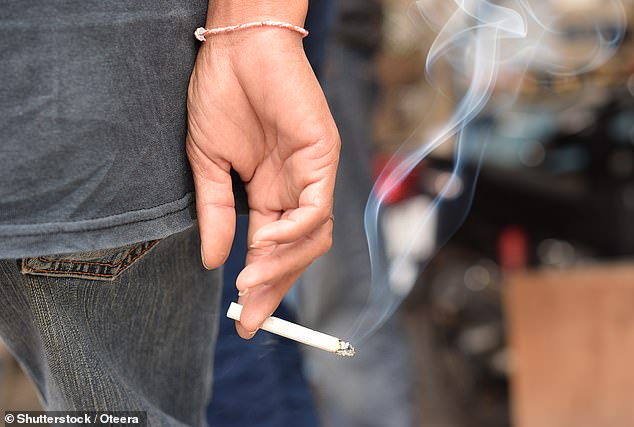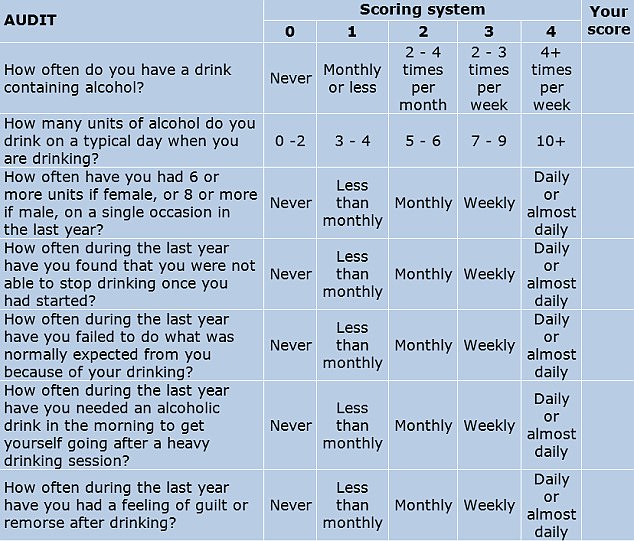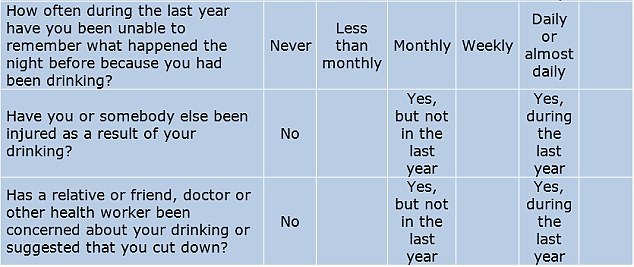Ultimate guide on how to survive Dry January: Psychologist shares 4 tips to distract you from thinking about alcohol or cigarettes
Giving up booze and throwing away cigarettes are easily two of the most popular New Year’s resolutions.
But when you are confronted with the offer of a pint in the pub or surrounded by smokers, it can be difficult to maintain these health ambitions.
However, addiction specialists say there are a few ways you can trick your brain into sticking with your sober or cigarette-free goal.
Planning an escape route from social events, playing a sport, or leaving positive notes for yourself are all methods that can help you stick with it.
So if you’re thinking about giving up on your goal, this ultimate survival guide – created by experts – to quitting might just help.
To avoid giving in to temptation, experts recommend having a sober buddy at social events or scheduling a time to leave
Be active
Staying active through exercise, a hobby or even just a walk can be a healthy distraction from alcohol or cigarettes, experts say.
“Filling your time in active, enjoyable ways—sports, friends, books—will keep you engaged and take your mind off the thought of drinking,” says Dr. Ryan Wade, an addiction specialist at Silver Hill Hospital in Connecticut, USA
Georgia Foster, a Melbourne-based therapist who runs The drink-less spirit program, told MailOnline that finding a healthier habit to replace drinking or smoking is the key to quitting, whether for Dry January or permanently.
“When we drink, our brains release dopamine, so we actually become addicted to the dopamine rather than the alcohol,” she says.
Therefore, another activity that provides a dopamine hit can help with quitting.
The body also releases dopamine in response to exercise, such as listening to music, going outside and meditating.
Create an alcohol-free space
It may sound obvious, but not having alcohol or cigarettes in the house will create a physical barrier to accessing either – making it easier to abstain for a month.
‘Make your living space alcohol-free; the easier the access, the harder it is to resist,” says Dr. Wade.
He adds, “Having to drive to a store to purchase alcohol gives you the opportunity to reconsider your decision and stay committed to your sobriety goals.
‘Also take your social environment into account outside your home.’
When attending social events where exposure to drinking and smoking is likely, it is best to stay with someone who supports your goals.
He says, “If you plan to attend a social event where alcohol is present or people are smoking cigarettes or vaping nicotine, it may be helpful to have a friend with you who maintains a similar level of sobriety.”
‘Staying with them at a social gathering can take away the pressure of feeling like you have to go to the bar or go outside to smoke.’
Distract your brain
Every time you feel the urge to reach for a cigarette or drink, replace that thought with something else to distract your brain, experts advise.
Focusing on something positive – such as reading positive notes or looking at funny pictures or videos – “will redirect your brain’s thoughts,” Ms. Foster explains.
“In that nanosecond you’ll get away from that moment where you’re thinking about having a cigarette or a drink,” says Ms Foster.
Spending time with friends can also help.
“What often seems to be an effective ‘replacement’ when people are recovering is increasing social contact and connection with others,” says Dr. Wade.
“If you can focus your time and attention on communicating with others, the distraction can be quite effective and reduce the amount of wasted time that can lead to cravings,” he adds.

Addiction specialists say it’s easier to quit smoking if you don’t have cigarettes in the house and instead fill your time with seeing friends or exercising.
Plan your departure
Even if you have a friend who gives up alcohol or cigarettes with you, there is always a situation where the temptation to give up Dry Jan is great.
To avoid being led astray, experts say it’s important to have an exit strategy.
Whether that’s an excuse, a set time, or a route to get home, planning ahead can help you avoid difficult scenarios.
Dr. Wade recommends being strategic with your arrival and departure times, which can act as a “protective barrier.”
Arriving a little late can allow you to slip in unnoticed without a drink in your hand, while having a cut-off time can help with leaving an event if alcohol consumption increases, he says.
Dr. Wade says, “The temptation may be greater and you may want to avoid awkward situations with those who want you to join the party. Leaving before this phase will help you stay sober.”
Plus, planning a schedule for how the night will go can act as a “support system” and as a “buffer against temptation,” says Dr. Wade.
Overall, the approach can help “reduce the temptation and potential triggers associated with drinking alcohol at social events,” he adds.


